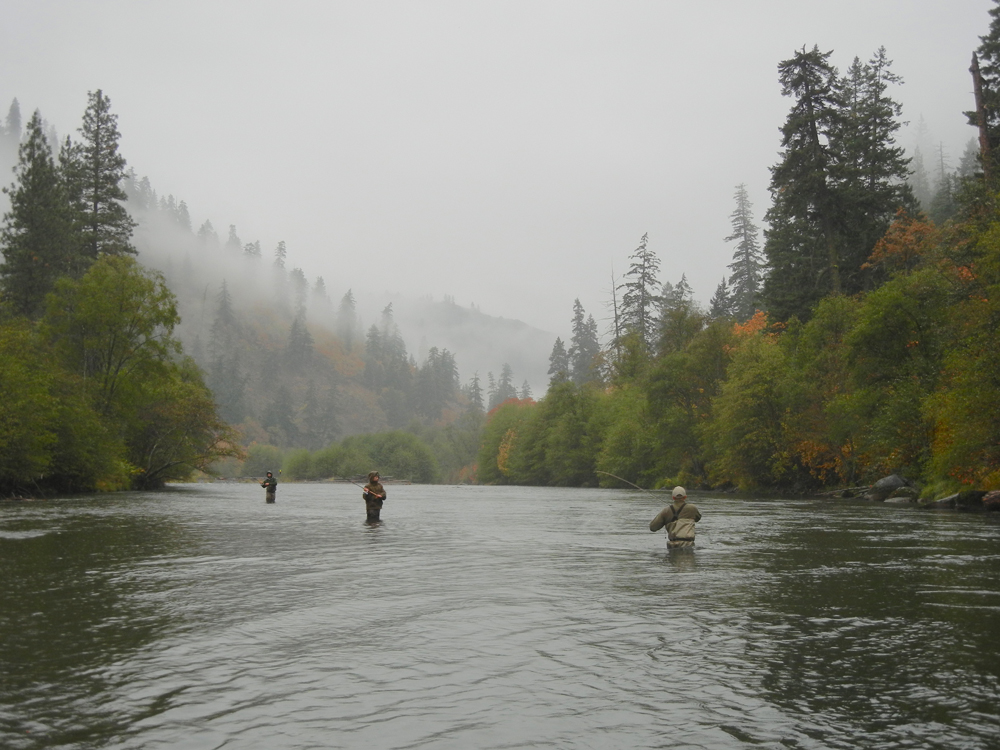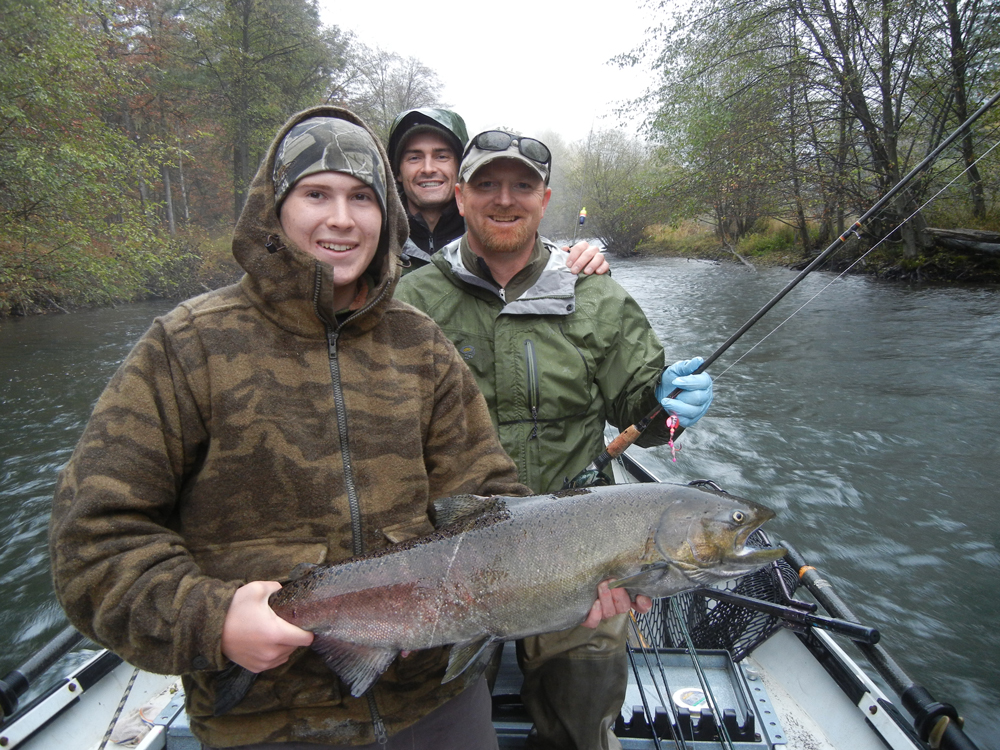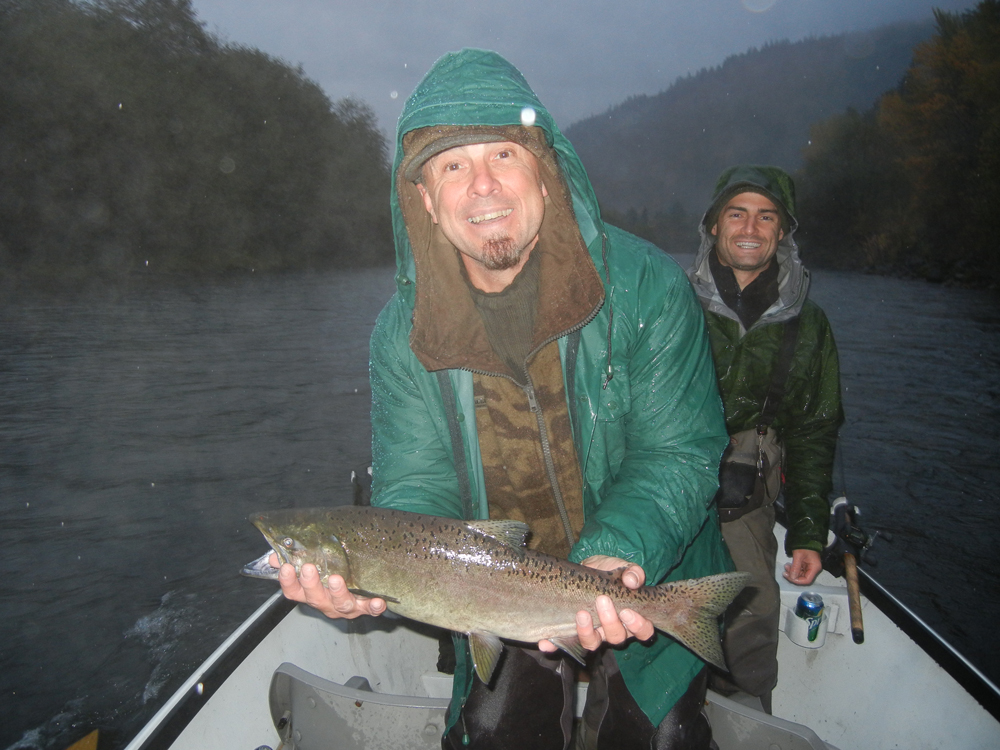Klickitat Country
March 11, 2021



 Fishing,SCA Articles
Fishing,SCA Articles

The Klickitat River drains a rugged plateau southward to the Columbia River where large rainbow trout, fall-run salmon and steelhead thrive.
Tumbling out of the eastern shadow of Washington’s Cascade Range, the Klickitat River drains a rugged plateau southward to the Columbia River. Large rainbow trout share these waters with fall-run salmon and steelhead. Here, a weekend on the “Klick” can be an adventurous break from fall’s upland-hunting traditions.
The crew, consisting of good friend Todd and my sons Makary (Mak) and Nate, ventured up-river in the twilight of morning to locate the launch. “Launch” is a rather generous term for a spot where the brush wasn’t too thick nor the boulders too big. There was enough room to bounce the drift-boat trailer down the bank and into the current—just enough! We would drift to good runs, then wade while fishing. Todd would guide us to many such places.
A heavy gray mist drooped down towards the river, eventually cloaking the rocky canyon rim from view. October leaves of orange and gold fluttered about in the breeze of changing weather.
It was late afternoon, and we had anchored along a massive basalt cliff. Thus far a few trout had been caught and released, but salmon continued to elude us. Mak and I tossed bobber rigs, while Nate’s plug-bait dove into the current off the bow. It was Nate’s rigging that jumped into deep-bending tugs. Fish on!

Nate’s second chinook, with Todd and Mak grinning behind him.
The chinook made two or three strong runs before good gear and fish-play won out over the primal drive to continue a migration to destiny. The crew finally had something to cheer about; Nate had caught his first chinook and our first salmon of the day!
Not long after the wriggling lure was returned to the river, the scene was replayed. This fish was noticeably larger, spinning yards of line off on its dash back to the Columbia River. Todd skillfully maneuvered the boat into an eddy better suited to land the powerful fish. Tagging his second chinook, Nate finished his day on a very happy note.
Makary took up the oars while Todd supervised our drift to the last stretch of fishable river before camp and nightfall. He then graciously declined fishing, allowing Mak and me the bow to back-troll plugs. Soon my rod dipped with the cadence of a hooked fish. I was surprised at how quickly it came boat-side and assumed it would be another large trout. What we netted was the more desirable chinook “jack,” the term for a smaller male salmon that remains only a single year in the ocean— a welcome addition to our larder.

The author, Jack, with his “jack.”
Dense clouds and the soaring Cascades to the west made the last glow of light all but nonexistent. We were down to mere minutes of fishing when serenity was shattered by a whopping plunge against the river’s surface.
My reel was giving line fast before anyone realized that we had the steelhead hooked. I bowed the rod tip to the large hen as it left the water for a second time, then regained the slack to slow the fish’s advance. To and fro we struggled before the upper hand could be gained. Wild as she was beautiful, bullet-sleek with blushing vermillion-red sides, she was carefully placed into the net for a photo, then quickly released. Our day was complete.
The night was filled with intense rain. The river’s complexion was that of chocolate milk, its pace, torrent. There would be no second day of fishing, so we took advantage of an afternoon break in the weather to pack up camp. In stereotypical fashion, a glimmer of sunlight and a rainbow met us at the canyon rim, sending us on our way home from Klickitat country.
